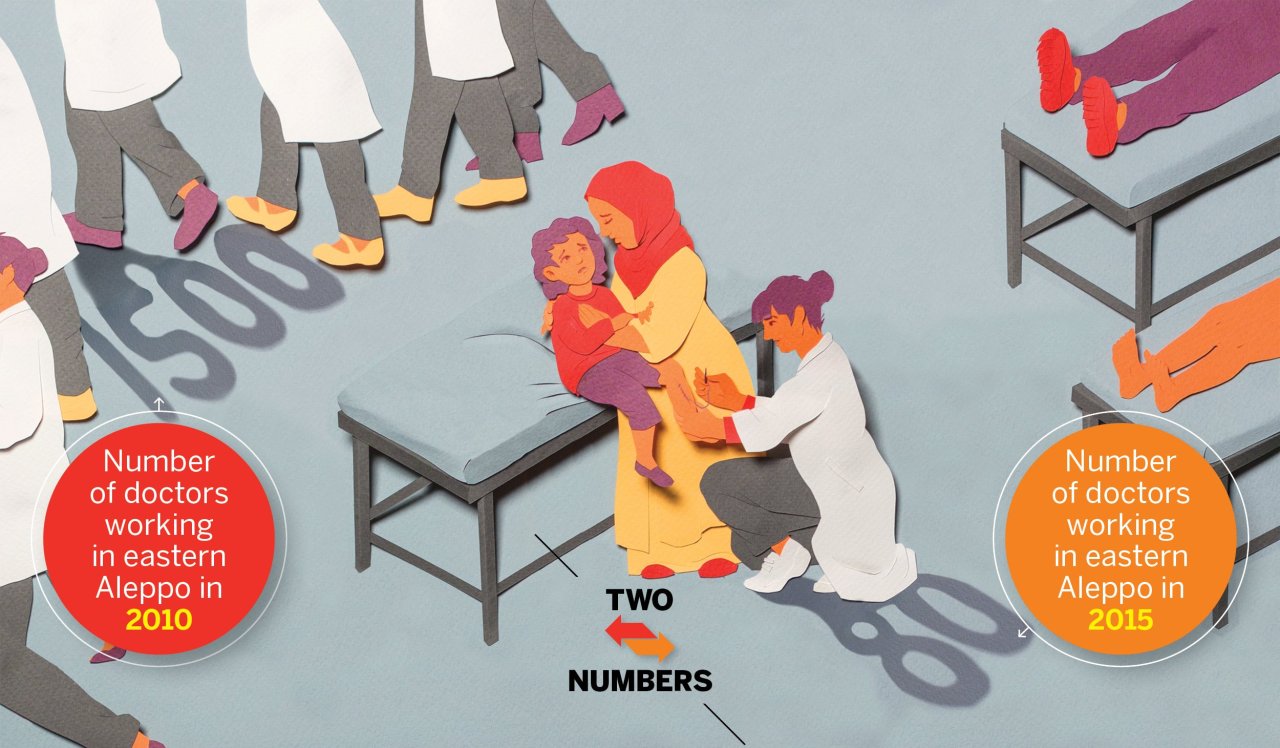The number of doctors in Syria's rebel-held eastern Aleppo has been reduced to no more than 80, as the vast majority have been killed or fled, according to New York-based nonprofit Physicians for Human Rights.
The city is divided into two sections, with rebels of various factions controlling the east and government forces holding the western districts. Physicians for Human Rights produced a report on the eastern part of the city, where it said the population has fallen from around 1.2 million in 2010 to around 300,000 since the country's civil war broke out in 2011. (The total prewar population of Aleppo was more than 2 million, making it Syria's largest city.)
In 2010, 1,500 doctors were working in the eastern part of Aleppo, the report said. Now 80 doctors, at most, are still working, but the actual number at any given moment is between 37 and 50, as these doctors regularly take time off to rest in Turkey and elsewhere after working long hours for days on end in crisis conditions.
The report said around 95 percent of Aleppo's doctors have been killed, detained or have fled the city. That means there's now roughly one doctor for every 7,000 people in eastern Aleppo, compared with one doctor for every 800 people in 2010 . The number of specialists has dwindled, leaving just one cardiologist, one neurologist, one female gynecologist and one or two urologists. The doctors who remain are mostly treating acute injuries from barrel bombs, and many are learning on the job, having had little experience before the war in performing amputations or surgeries.
Doctors working in eastern Aleppo who were interviewed by Physicians for Human Rights said that the burnout rate is high and that they live in constant fear of aerial bombardment, which has pushed many medical facilities underground. Around 200 nurses are thought to be still working with the remaining doctors.
Syrian government forces have attacked 45 hospitals in the past four years, according to Physicians for Human Rights. Since March 2011, 687 health care workers, including veterinarians, medical students and dentists, have been killed in Syria, and nearly 300 medical facilities have been destroyed. "We see this as a terrifying precedent for what could indeed be a very effective weapon of war," says Michele Heisler, co-author of the Physicians for Human Rights report and a University of Michigan professor of internal medicine, health behavior and health education. "Once you start targeting hospitals so people can't give or receive medical care, it is an insidiously effective way of sowing terror."




















